Assault Lawyer in Toronto
How to Successfully Defend Assault Charges
If you are facing assault charges, it is essential to have a skilled defence lawyer who can provide effective representation. As assault charges can vary in severity and carry different legal implications, understanding these distinctions is crucial for building a strong defence strategy.
That's where our team of criminal defence lawyers come in. Our proven track record and personalised defence strategies set us apart. We are skilled in handling a variety of assault charges, including assault, assault causing bodily harm, aggravated assault, assault with a weapon, and domestic assault. Keep reading to learn more about these charges and our successful defence tactics.

What Is Assault?
Section 265 of the Criminal Code defines assault as the intentional application of force upon another person, directly or indirectly, without the other person’s consent. Classified as a criminal act, it is considered one of the more severe violations a person can commit, and it can have serious consequences.
Depending on the severity of the assault and whether it is prosecuted as an indictable offence or a summary conviction offence, the punishment can include imprisonment, payment of restitution, or community service.
It is important to remember that the threat of assault is sufficient for a charge of assault to be filed.
Types of Assault Charges in Canada
Pyzer Criminal Lawyers are experts in defending people who are charged with assault. We have successfully defended many such cases by seeking discharges and raising issues such as self-defence to prevent our clients from ending up with criminal records. Some of the many types of assault charges we defend include:
- Simple assault
- Threats of assault
- Aggravated assault
- Assault causing bodily harm
- Assault with a weapon
- Domestic assault
- Sexual assault
If you find yourself on the receiving end of an assault charge, it is essential that you contact an experienced and specialised assault defence lawyer immediately. We are available for a free advice consultation 24 hours a day and are ready to represent you as a client. Our expertise can make a substantial difference to the outcome of your charge.
Assault Charges We Defend Against
Assault charges vary in severity, ranging from simple assault, often a misdemeanour, to aggravated assault, which carries harsher penalties. Factors such as intent, degree of harm, and weapon use influence the nature of the charge and its consequences. The section below explores these distinctions in detail.
Simple Assault
Simple or common assault is found in section 265(1) of the Criminal Code and is defined as the intentional application of force, either directly or indirectly, against a person without their consent. Simple assault is considered less serious than aggravated assault, assault causing bodily harm, or assault with a weapon.
Threats To Assault
Threatening assault, even if force is not applied, is an offence, whether it is only oral (“uttering”, section 264.1 Criminal Code) or threatening acts or gestures (section 265(1)(b) Criminal Code). Uttering threats involves knowingly uttering, conveying, or causing any person to receive a threat and is known as a “specific intent” offence.
Assault Causing Bodily Harm or Assault with a Weapon
Under Section 267 of the Criminal Code, assault causing bodily harm and assault with a weapon occur when simple assault involves a weapon or results in bodily harm. These offences carry harsher penalties than simple assault due to their increased severity. A weapon can be any object used to cause injury or death. As hybrid offences, the Crown can choose to proceed by summary conviction or indictment, impacting the potential penalties.
Aggravated Assault
Aggravated assault is found in section 268(1) of the Criminal Code and is one of the most serious assault charges. Aggravated assault is an augmented form of assault and occurs when an accused wounds, maims, disfigures or endangers the life of another person.
Domestic Assault
Domestic assault is not a specific type of assault, as the different types of assault in the Criminal Code apply. In domestic assault cases, the accused will be charged with either simple assault or one of the more serious forms of assault, provided the accused has an intimate or familial relationship with the victim. Alternatively, the Crown may agree to withdraw the assault charges in lieu of the defendant agreeing to enter into a peace bond.
Domestic Violence
Domestic violence crimes are treated and punished by law more severely because physical or emotional abuse or injuries are inflicted upon those who are in an intimate or familial relationship. A criminal assault lawyer who has experience defending domestic violence charges will understand the additional complications that come with a domestic violence charge, including the impact it may have on child custody arrangements, family law, and the division of property.
Sexual Assault
Sexual assault charges are often complex. Hiring an experienced sexual assault lawyer in Toronto is the best thing you can do if you are charged with sexual assault. To learn more about sexual assault, read our comprehensive guide on sexual assault charges in Canada.

Penalties for Assault Charges in Toronto
Assault charges in Ontario carry severe penalties, including jail sentence, fines, and a criminal record. The police play a crucial role in laying charges and gathering evidence, but their decisions are not final—strong legal representation can challenge the evidence they present. Whether your case proceeds as a summary conviction or indictable offence, your trial or sentencing may occur in the Ontario Court of Justice. Our experienced criminal defence lawyers regularly defend clients in the Ontario Court of Justice, striving to reduce penalties, negotiate alternative resolutions, and protect against unnecessary convictions.
These penalties vary depending on the type of assault and other factors and can include imprisonment, fines, and a criminal record.
Here is an overview of the minimum and maximum penalties for different types of assault:
- Assault: The penalties for assault vary depending on the severity of the offence and whether it is prosecuted as a summary conviction or an indictable offence. The penalty for a summary conviction is up to 2 years less a day in prison, while the penalty for an indictable offence is up to 5 years in prison if the Crown elects by indictment.
- Assault with a weapon or causing bodily harm: If the Crown proceeds by way of an indictable offence for assault with a weapon or causing bodily harm, the maximum penalty is 10 years in jail.
- Aggravated assault: Aggravated assault is a more serious form of assault that involves wounding, maiming, disfiguring, or endangering the life of the victim. Aggravated assault is always treated as an indictable offence. If found guilty the maximum penalty for aggravated assault is 14 years in prison.
- Sexual assault: For both indictable and summary convictions, the maximum penalty is 18 months if the complainant is over 16 years old and a maximum of 2 years less a day if the complainant is under 16 years old.
Usually, the severity of an assault penalty correlates with the harm inflicted, ranging from probation and fines for less serious allegations to potentially no criminal record. However, a guilty verdict for assault or aggravated assault can have a far-reaching impact on your employment opportunities, your ability to travel internationally, any citizenship processes, and might even lead to deportation for non-citizens in severe cases.
Common Defence Strategies for Assault Charges in Canada
We cannot possibly list all the defences that specialised assault defence lawyers could potentially help you with. However, we can provide a brief overview of some key ones that we have substantial experience and success in handling. These are summarised below.
Self-Defence
The Criminal Code provides several defences for assault, including self-defence, defence of others, and defence of property. Under Section 34, you may argue self-defence if you reasonably believed you or someone else was in immediate danger and used proportionate force. Section 35 extends similar protections to those defending property. An experienced assault lawyer can assess whether these legal justifications apply to your case.
Lack of Intent
Intention to assault is required for a conviction. If you did not intend to commit an assault, you may be able to argue that you did not have the necessary mental state to be guilty of the offence. For example, if you accidentally pushed someone during a heated argument, you may be able to argue that you did not intend to cause harm.
Consent For The Use of Force
Although a limited defence, if an alleged victim consented to the assault, you may be able to argue that no criminal offence was committed. Implied consent may also apply in certain situations where both parties' actions suggest a mutual agreement to physical contact, such as in sports or specific social interactions. The Criminal Code (Sections 265(3) and (4)) outlines when consent is invalid, particularly in cases involving fraud, coercion, or power imbalances.
Mistaken Belief in Consent
The defence of mistaken belief in consent relies on the accused’s subjective perception that the complainant agreed to the use of force. However, this belief must also be objectively reasonable, meaning a reasonable person in the same situation would have reached the same conclusion. The defence is invalid if the accused showed willful blindness by ignoring clear signs of non-consent.
Reasonable Doubt
The defence of reasonable doubt is a fundamental principle in Canadian criminal law that guarantees the right of any person charged with an offence to be presumed innocent until proven guilty beyond a reasonable doubt. A reasonable doubt can stem from the evidence or lack thereof, and it is the Crown prosecutor's responsibility to prove all aspects of the offence beyond this doubt, without requiring the accused to present any evidence or prove their innocence.
Plea Bargain
A plea bargain may lead to reduced charges if there are procedural or evidentiary weaknesses in the Crown’s case. Your defence lawyer can negotiate with the Crown to avoid trial and secure a more favourable outcome.
Charter Rights Violations
Charter rights violations, such as unwarranted search and seizure, can result in an acquittal if proven in court. The Courts take these violations seriously, and evidence obtained unlawfully may be excluded from the case.
The Power of Cross-Examination in Assault Defence
Cross-examination is one of the most powerful tools in a criminal defence lawyer’s arsenal. It allows your lawyer to question the prosecution's witnesses, expose inconsistencies in their statements, and challenge the reliability of their testimony. We use strategic cross-examination techniques to dismantle weak evidence, uncover bias, and highlight contradictions that may cast doubt on the case against you.

Get Help From An Experienced Assault Lawyer
The legal realm of criminal law can be complicated. The best thing you can do if you are charged with assault is hire an experienced assault lawyer. Pyzer Criminal Lawyers are dedicated assault lawyers. We are here to obtain the best possible outcome for all of our clients.
We understand the seriousness of criminal charges, and how a criminal record will affect all aspects of your life. We will do everything we can to find the best legal defence and make the process less stressful for you. We have decades of experience defending assault charges, and we know all of the ins and outs of the legal system.
Assault Case Study
R v Q.A.
The young offender accused, Q.A., was charged with one count of assault causing bodily harm. The allegations were that during the lunch hour, while at school, Q.A. got into a confrontation with one of his classmates. The alleged victim reported that the accused approached him, punched him in the face and then pushed him down a flight of stairs. The alleged victim had to be taken to the hospital, where he received multiple stitches to his head.
Mr Pyzer represented Q.A. and was successful in having the charge against the accused withdrawn upon his completion of court-sanctioned extrajudicial measures, which included a letter of apology and mediation with the complainant. Q.A. does not have a criminal record in relation to this incident, and there was no finding of guilt made by the court.
What Our Clients Say About Us
Frequently Asked Questions About Assault
What is the difference between assault, assault with a weapon, assault causing bodily harm, and aggravated assault?
Assault refers to the act of applying force to someone without their consent. If a weapon is used during this act, it becomes an assault with a weapon. When the assault leads to bodily harm, it's considered a more serious offence known as assault causing bodily harm. The most serious type, aggravated assault, involves actions that result in wounding, maiming, disfiguring, or even endangering the victim's life. The last three forms of assault typically require more serious requirements to be present and have much more serious consequences.
What is the difference between assault and battery?
Battery is a US legal concept relating to the application of force and is not a legal term in Canadian courts. However, it is sometimes used in describing certain facts, such as the use of force against another that results in offensive or harmful contact.
How much force is required to commit an assault?
A person commits an assault when they intentionally apply force to another person, directly or indirectly, without their consent. However, it is important to note that no physical contact is required for someone to be charged and convicted of assault. Assault can also occur when someone, for example, threatens physical force against someone or brandishes a weapon.
Is harm an element of an assault charge?
No, harm is not an essential element of assault. You can be charged with assault if you intentionally apply force to another person, directly or indirectly, without their consent, regardless of whether or not harm was caused. Assault can also occur when you threaten physical force against someone or brandish a weapon. It is important for you to note that there is no requirement for physical contact for you to be charged and convicted of assault.
Is it assault if I accidentally hit someone?
While hitting somebody accidentally does not typically amount to an assault, since the intentional application of force without consent is required, there are situations where an accidental act can still be considered assault. Some examples are if the accidental hit was a result of negligence or reckless behaviour, provocation, or if the accidental hit caused significant harm or injury. For example, if a person accidentally hits someone else while throwing a punch in a fight, it could be considered assault.




